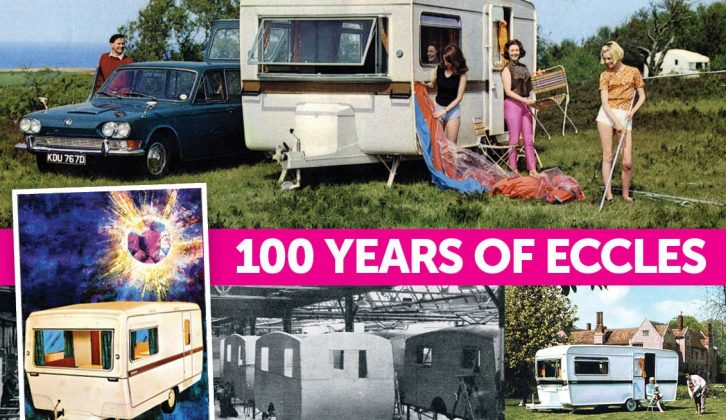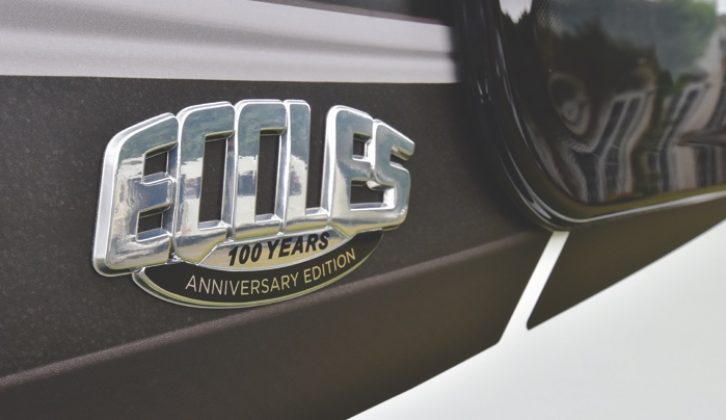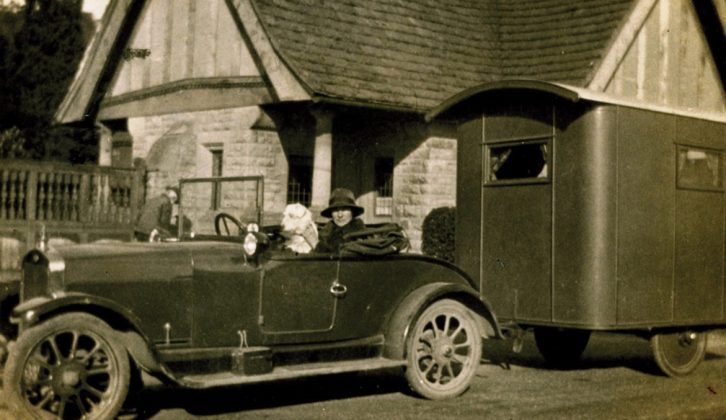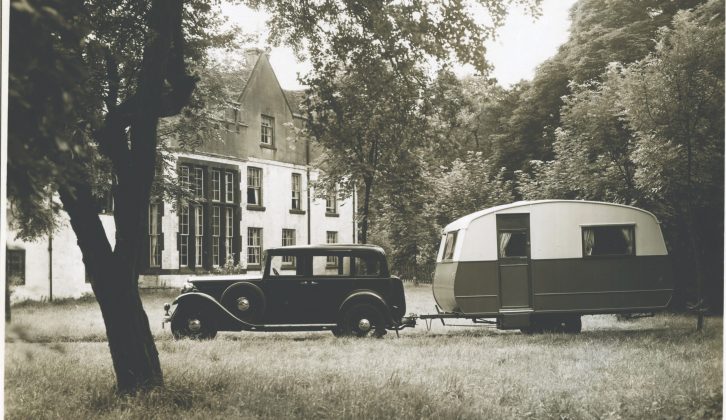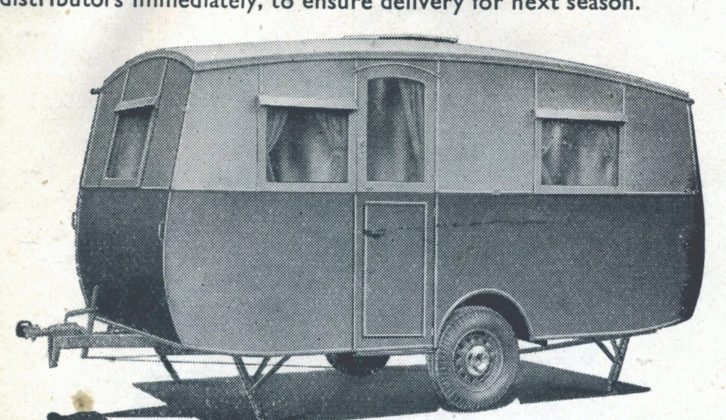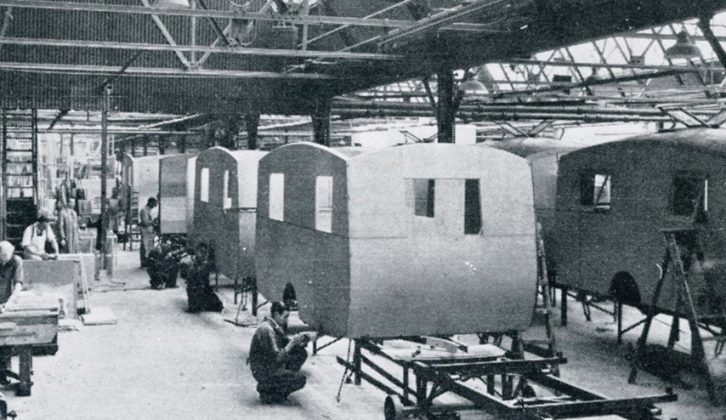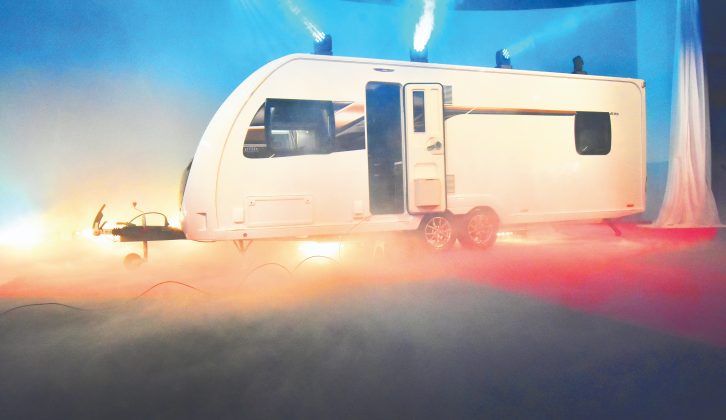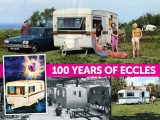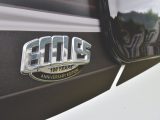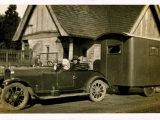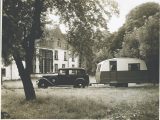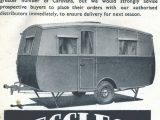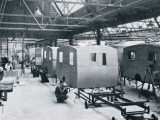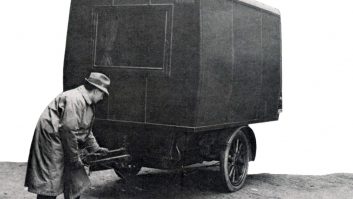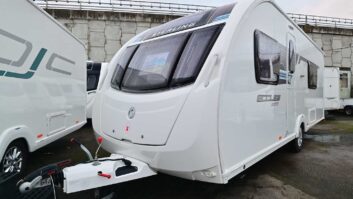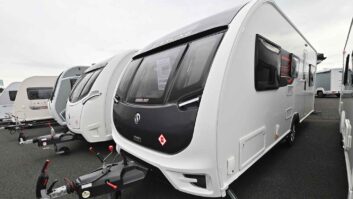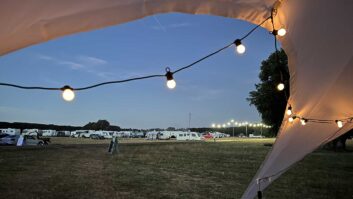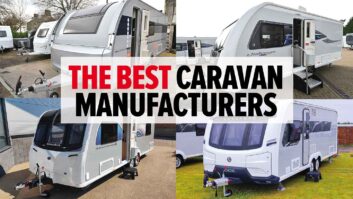One hundred years ago, Bill Riley senior and junior, an enterprising father-and-son team, bought into the Eccles Motor Transport Company, at Gosta Green, in Birmingham. The business wasn’t doing particularly well, so the two Bills looked into the idea of motorised caravans and trailers as a new way to holiday.
Before WWI, horse-drawn caravans were rare, and only for the rich. But as cars had become more powerful and reliable, Bill junior opted for a car-pulled trailer-caravan, while Bill senior went back to another idea derailed by war – the motorhome.
Designing and promoting these became a going concern in 1919, under the brand Eccles, after the name of the company.
Motorcaravans rapidly put Eccles ahead of the game, although setting up the factory wasn’t easy and Bill junior travelled all over the UK trying to sell his car-pulled caravan idea. Some garages purchased them for hire, which helped to develop sales of this very basic caravan, priced at around £90.
Roaring twenties
By the mid 1920s, buyers from abroad wanted Eccles caravans, with motor caravans lagging behind. Other businesses began to produce rival models, but quality and innovative design kept the Eccles firmly in the lead.
Towards the end of the decade, it was clear the idea was really taking off. A new factory was built at Stirchley, in Birmingham, and caravanning as we know it was born.
By the early 1930s, the pastime became affordable for a broader group of buyers – people who realised that the caravan was a great way to discover the UK.
Streamlined models were introduced, with names such as President and Senator being well-known in caravanning circles. To cope with the growing market, factory extensions were put into place. Eccles also developed the first awnings – known as ‘lean-to’ tents!
When the late 1930s gave way to the war years, caravanning naturally ceased. Like many manufacturers, Eccles switched to war work, producing everything from trailers to ambulances and searchlight transporters.
Post-war production
In 1946, the Eccles Enterprise was launched, selling well to a buying public keen to return to peace-time leisure activities.
The 1950s saw new designs and models on the production lines, helping to keep Eccles ahead of what was by now a very competitive market, where about 40 firms were making caravans.
Names such as Progress, Active, Bounty and Coronation became familiar to buyers. These new models saw innovations in design, including movable seating in the lounge.
Eccles caravans also attracted celebrity endorsements from stars such as Gracie Fields, further promoting the brand.
Despite the initial success of the business, by the end of the 1950s, the touring market was changing and fragmenting, with many new names joining the fray, and this was seen as the right time to sell the company.
Enter the Sprite…
Sprite Caravans was one of the new entrants to the field, and its founder, designer Sam Alper, had long admired the Eccles brand.
Sam bought the company in 1960, selling the Birmingham plant and moving the Eccles to Newmarket, where Sprite’s rapidly growing factory was located.
By 1962, the Eccles had been redesigned inside and out, with a striking appearance that would last through to 1971. The new models were named after gemstones, and with new production methods, Eccles was once again a market-leader in Europe.
Sprite and Eccles merged in 1963 to become part of Caravans International, then a global group of leisure vehicle manufacturers.
Eccles was sold throughout Europe and by the early 1970s, the brand developed further, incorporating a new Styrofoam-injected construction system.
In 1982, a buyout brought Eccles and Sprite into a smaller group, which began producing aerodynamic designs throughout the decade. By the early 1990s, the Eccles brand was still best-known for its innovative style. At this time, the Sprite Leisure Group continued to build on the enviable Eccles heritage.
… and now, Swift
In 1994, another chapter in the story began, when Swift Group purchased Sprite Leisure and the Eccles brand was handed to Sterling Caravans, with production moving from Newmarket to Cottingham, in East Yorkshire.
Swift brought in new ideas and the brand flourished. By the early 2000s, the restyled interiors reflected a more Continental design.
This streamlined look rather took the market by storm, and combined with Swift’s latest manufacturing process and innovative design, the Eccles as popular as ever.
100 not out!
In 2018, the Sterling name was dropped and the range was rebranded as the Swift Eccles.
This was followed in 2019 by the Swift design team giving the Eccles a celebratory make-over, complete with ‘100 years’ badge.
Over the years and under various names, Eccles has really pioneered the development of the touring caravan and helped to shape the industry on a global scale. Without the Rileys’ design and business skills, this might have remained something of a niche pastime, rather than the global-scale leisure pursuit it has become. Many happy returns, Eccles!
You can see what we have to say about the new centenary edition in our review of the Swift Eccles 580.
By the early 1930s, the pastime became affordable for a broader group of buyers - people who realised that the caravan was a great way to discover the UK
